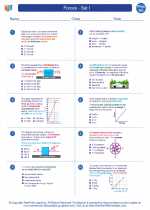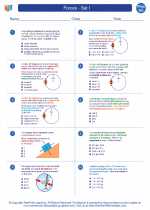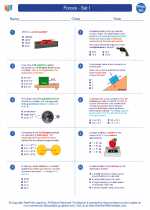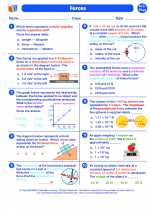Chromosomes
Chromosomes are thread-like structures located in the nucleus of animal and plant cells. They are made up of DNA and proteins and are the carriers of genetic information.
Structure of Chromosomes
Each chromosome consists of two sister chromatids, which are joined at a centromere. The chromatids contain genetic material in the form of genes.
Functions of Chromosomes
- Carrying genetic information: Chromosomes contain the instructions for the development, functioning, and reproduction of living organisms.
- Cell division: During cell division, chromosomes ensure that the genetic material is accurately distributed to the daughter cells.
Types of Chromosomes
There are two main types of chromosomes:
- Autosomes: These are the non-sex chromosomes found in both males and females.
- Sex chromosomes: These determine the sex of an individual. In humans, females have two X chromosomes (XX) and males have one X and one Y chromosome (XY).
Chromosomal Abnormalities
Changes in the structure or number of chromosomes can lead to genetic disorders. Some common chromosomal abnormalities include Down syndrome (trisomy 21) and Turner syndrome (monosomy X).
Studying Chromosomes
To study chromosomes, scientists use techniques such as karyotyping, fluorescence in situ hybridization (FISH), and polymerase chain reaction (PCR).
Study Guide
Here are some key points to remember when studying chromosomes:
- Understand the structure of chromosomes, including the centromere and sister chromatids.
- Learn about the functions of chromosomes in carrying genetic information and facilitating cell division.
- Identify the different types of chromosomes, including autosomes and sex chromosomes.
- Be familiar with common chromosomal abnormalities and their effects on individuals.
- Explore the various techniques used to study chromosomes in research and diagnostics.
◂Physics Worksheets and Study Guides High School. Forces - Set I

 Worksheet/Answer key
Worksheet/Answer key
 Worksheet/Answer key
Worksheet/Answer key
 Worksheet/Answer key
Worksheet/Answer key
